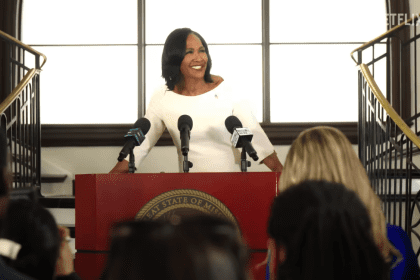In a significant pivot that mirrors recent moves by other corporate giants, McDonald’s announced on Jan. 8 it would sunset several of its diversity initiatives, marking the latest Fortune 500 company to modify its approach to workplace representation and inclusion programs.
Scaling back commitments
The fast-food corporation is dismantling key elements of its diversity framework, including specific representation goals for leadership positions and supplier diversity targets. The company will no longer require its supply chain partners to commit to diversity pledges, choosing instead to incorporate these discussions into broader business performance conversations.
The Chicago-based restaurant chain is also withdrawing from external surveys that measure corporate diversity metrics, joining other major corporations like Ford and Walmart that have made similar moves. This decision comes amid growing scrutiny of corporate diversity programs and follows a Supreme Court ruling that struck down affirmative action in college admissions.
Rebranding and restructuring
In a notable shift, McDonald’s is rebranding its diversity team as the Global Inclusion Team, reflecting a wider corporate trend of modifying language around these initiatives. The company frames these changes as an evolution rather than an abandonment of its inclusion efforts, though the practical impact of these modifications remains to be seen.
Historical context
This rollback represents a significant departure from McDonald’s previous stance. The company had launched substantial diversity initiatives in 2021, following sexual harassment lawsuits from employees and discrimination claims from Black former franchise owners. These programs were designed to address systemic issues and create measurable improvements in representation across the organization. Another aspect is that these rollbacks come from a corporation that has extensively marketed to African American communities over the years as a budget-friendly option and an employment — if not entrepreneurial — opportunity. Vice President Kamala Harris, for example, stated how she worked at McDonald’s during her presidential campaign.
Industry implications
McDonald’s decision carries particular weight given its position as one of the world’s largest employers and its significant influence on corporate practices. The move adds to a growing list of major companies, including John Deere and Harley-Davidson, that have scaled back their diversity programs in recent months.
The timing of these changes coincides with broader national discussions about corporate diversity initiatives and their implementation. Critics argue these rollbacks could slow progress in addressing workplace disparities, while supporters maintain that companies can maintain inclusive environments without specific demographic targets.
Corporate reasoning
McDonald’s leadership frames these changes as a strategic shift rather than an abandonment of inclusive practices. The company states it will continue reporting demographic data in annual reports and maintain certain programs, such as franchisee affinity groups and business networks. However, the removal of specific goals and metrics raises questions about how progress will be measured and achieved moving forward.
The company’s strategic refocus emphasizes business performance and community engagement over explicit diversity targets. This approach aligns with a broader corporate trend of integrating inclusion efforts into general business practices rather than maintaining them as standalone initiatives.
Looking ahead
The long-term impact of these changes remains uncertain. While McDonald’s maintains it will continue fostering an inclusive environment, the removal of specific goals and external accountability measures represents a significant shift in how corporate America approaches workplace diversity. This transformation signals a potential sea change in how major corporations balance various stakeholder interests while responding to evolving legal and social pressures.
These modifications reflect broader tensions in corporate America as companies navigate competing pressures from various stakeholders. As more corporations reevaluate their diversity programs, McDonald’s approach could influence how other businesses address these challenges in the coming years.
The rollback of these initiatives raises important questions about the future of corporate diversity efforts and their effectiveness in creating lasting organizational change. As the business landscape continues to evolve, the impact of these decisions on workplace representation and corporate culture will likely be closely watched by industry observers and stakeholders alike.
















